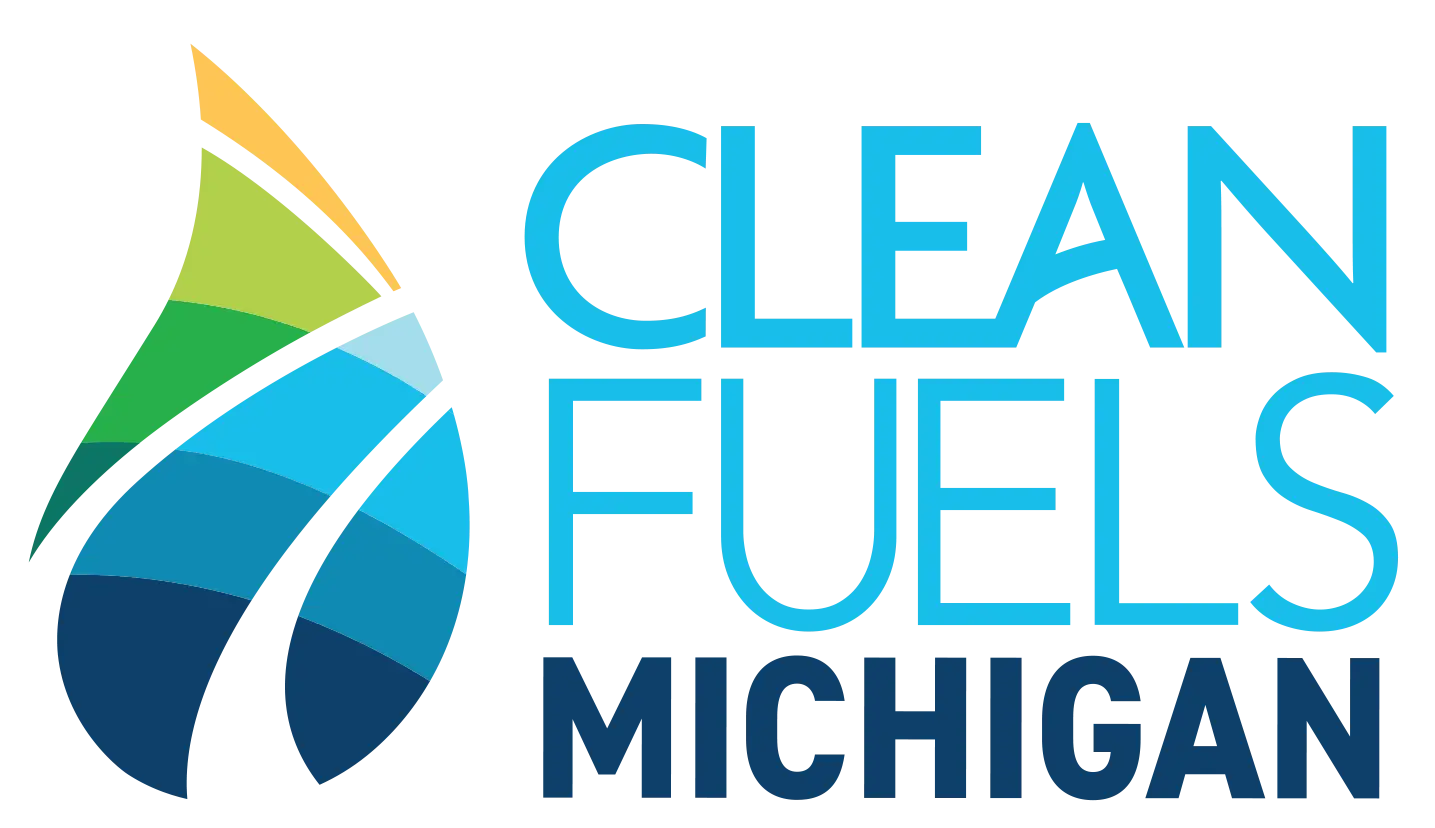Cleaner transportation will benefit all Michiganders by reducing harmful emissions while also reducing fuel and maintenance costs. The transition to clean, more innovative mobility technologies will require a shift in the way Michiganders and our visitors get around. Instead of relying on gasoline from the pump, electric cars will be fueled by a network of electric vehicle charging stations. The National Electric Vehicle Infrastructure Program (NEVI) can help Michigan meet this unique moment in the EV and clean mobility industry. This NEVI program provides $5 billion over the next five years, divvied up to the states, to establish an interconnected public charging network.
Each state’s Electric Vehicle Infrastructure Deployment Plan was approved, which allows states to access their share 2022 and 2023 NEVI funding. States have the responsibility to select projects and priorities for funding.
Clean Fuels Michigan developed the following recommendations to ensure that Michigan’s NEVI funding is spent efficiently to increase electric vehicle adoption and ensure that no Michiganders are left behind in the transition to clean mobility.
Prioritize Expediency and Create Clear Timelines
Projects can take a long time and we need charging infrastructure in the ground as quickly as possible. We encourage the Michigan Department of Environment, Great Lakes, and Energy (EGLE) to publish a timeline for solicitations and funding decisions. This will help create certainty and allow industry partners to plan accordingly to create well-though-out projects.
Develop a Clear Rubric
We recommend that Michigan develops a clear rubric that awards projects that go above the minimum requirements. However, some sites may be unable to accommodate all desirable project components. Instead of requiring all selected projects to meet a heightened standard, we recommend adding the following items to the rubric as additional “bonus” points:
- At least one charger that is higher power than 150 kW
- At least 1 pull through parking spot
- Handicap accessibility
- Tamper-resistant equipment
- Storage temperature rating suited for Michigan weather
- Circuit protection
- Incorporate an analysis of grid capacity considerations
- More than 20 percent cost share
- Future proofing sites by installing make-ready at the time initial chargers are deployed so that expansion in the future becomes more efficient
Prioritize Projects that Accommodate Commercial Vehicle Charging
With proper planning, NEVI funds can be used to develop infrastructure for both passenger and commercial vehicles. For example, public charging sites could be used for electric medium duty last mile delivery trucks. Adding versatility and flexibility into these stations now will future-proof the assets and ensure that the charging stations will be useful for many years to come, while also protecting our logistics and supply chains. The following considerations are important when planning a charging site that can accommodates larger vehicles:
- The physical parking space should be large enough to accommodate medium duty vehicles.
- Sites should offer higher additional ports with power levels, such as offering 2 ports that can charge 350 kW simultaneously compared to the minimum of 150 kW per port.
- The site location could serve more vehicles when positioned near fleet depots and along highways between large cities.
- Flexibility for high power commercial charging cables other than the required CCS cables should be permitted.
Prioritize Alignment with Existing Charging Programs
Utility programs like PowerMiDrive and Charging forward, along with EGLE’s ChargeUp Michigan have established programs that are focused on increasing charging station availability. For NEVI-funded stations, we recommend streamlining the processes with these existing programs for project applications to avoid confusion and make the customer charging station experience across Michigan more seamless. Streamlining these programs can also mean aligning requirements for data reporting.
Consider Ease and Accessibility
The NEVI funded charging network should be available to as many drivers as possible. Draft NEVI guidance requires states to ensure each charger has an average uptime of 97%. Site hosts should be required to have a service level agreement with the charging provider and prioritize Michigan based technicians. We recommend that “vandalism” be added as an eligible exclusion to the uptime calculations and date reporting. Otherwise, it could create a perverse incentive for providers to avoid areas with higher vandalism rates, which could exacerbate issues related to equitable charging station deployment.
The Federal Highway Administration’s contactless card reader requirement should be maintained. We recommend that companies be allowed to choose additional payment options. The swipe functionality of a charging station is one of the most likely parts of malfunction, which can undermine compliance requirements with uptime standard.
Though wireless charging is a great solution for particular use cases, it requires vehicle upfitting. We recommend prioritizing NEVI funds for traditional wired charging applications for maximum useability.
Require 50% of Funds to Deploy Chargers in Underserved Communities
In addition to directing the benefits of transportation electrification to underserved communities, NEVI offers an opportunity to invest in traditionally underinvested communities across Michigan. The state should ensure that charging stations are placed in communities that stand to benefit the most from improved air quality and transportation access.
Overall, by developing clear timelines, setting a rubric to award projects that go above the requirements, prioritizing commercial charging, considering ease and accessibility, and requiring the funding be spent in underserved communities, the state of Michigan can ensure that NEVI funds to establish a charging network are spent in a manner that creates the biggest positive impact across the state. Clean Fuels Michigan remains committed being an intermediary between government agencies, industry stakeholders and the public to maximize benefits of NEVI funds and other funding programs to increase adoption of clean mobility solutions.
